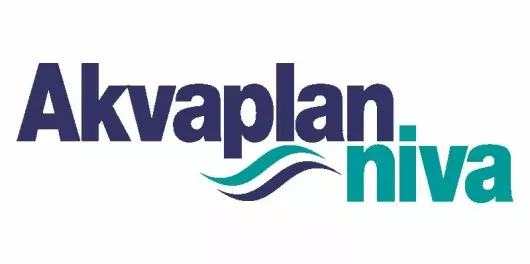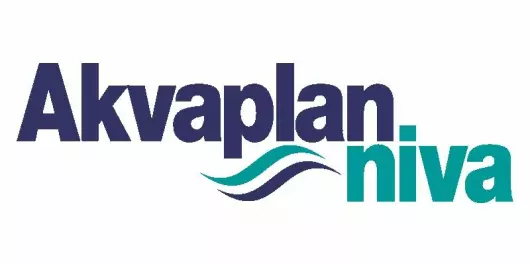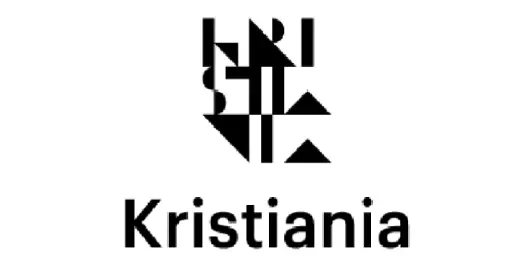Ledig stilling på Universitetet i Oslo
Blindern og Urbygningen (Foto: Wikimedia og Colourbox)
Postdoctoral Research Fellow in evolutionary genomics
Deadline: 30.11.2021
Universitetet i Oslo
The University of Oslo is Norway’s oldest and highest rated institution of research and education with 28 000 students and 7000 employees. Its broad range of academic disciplines and internationally esteemed research communities make UiO an important contributor to society.
Centre for Ecological and Evolutionary Synthesis (CEES) is a research centre and a section at the Department of Biosciences, University of Oslo. CEES combines a broad spectrum of disciplines (population biology, genomics, statistics, mathematical modelling) to foster the concept of ecology as a driving force of evolution via selective processes, with a corresponding influence of evolutionary changes on ecology. CEES has over 180 members (Professors (20), postdocs/researchers (60), PhDs (35), Master’s students (40) and technical and administrative staff) and many guest researchers. The members represent 30 nationalities and constitute a vibrant and creative research environment. CEES coordinate several international networks. The budget = 170 million NOK (about 55 externally funded research projects). CEES successfully completed its 10 year status of Centre of Excellence (CoE) in 2017.
Job description
Position as post doc available at Centre for Ecological and Evolutionary Synthesis, Department of Biosciences.
The position is for a period of 3 years. Starting date no later than 01.03.2022
No one can be appointed for more than one Postdoctoral Research Fellowship at the University of Oslo.
We are looking for a highly motivated candidate for a three-year post doc position as part of this exciting collaborative research project between the University of Oslo, University of Nottingham (UK) and the Netherlands Institute of Ecology (NIOO-KNAW). The researcher will help develop our understanding of the evolutionary origins of human-commensalism in Passer sparrows. The project will focus on two key questions; 1) does human commensalism have a single origin within the house sparrow? and 2) has adaptation to a human-commensal niche occurred in parallel in the tree sparrow?
We aim to combine morphological and genomic data from existing datasets, museum samples and ongoing fieldwork to address the core aims of the project. The successful candidate will be allowed to choose aspects of the larger program as best fits their skills and research interests. They will also be encouraged to develop additional, complementary avenues of research. The researcher will oversee population-level whole genome resequencing from the wet-lab to data interrogation and will be expected to be proficient in bioinformatics (R/Unix/Python) with documented skills in genomic analyses. A PhD in population genetics/genomics, evolutionary genomics, evolutionary biology or a related subject is necessary. Experience with working with birds and bird genomes would be helpful but is not a requirement. The researcher will be based at the Centre for Ecological and Evolutionary Synthesis at the University of Oslo but will also be expected to visit the University of Nottingham (UK) for additional training and support with research visits to the Netherlands. There will likely be opportunities for fieldwork in Central and Southern Asia. The working language of the research group is English.
It is becoming exceedingly clear that humans have been, and still are, drastically altering the planet. Although human activity typically has a negative effect on biodiversity, some species have rapidly adapted to novel niches opened up by human activity. The house sparrow (Passer domesticus) is a successful human commensal that thrives in human created niches. It has adapted to urban and agricultural habitats on every continent except Antarctica. Intriguingly, a number of other Passer sparrows are also human commensals having likely experienced similar selective pressures; one of the most striking is the Eurasian tree sparrow (Passer montanus), which is an obligate commensal across much of East Asia. The overarching aim of this newly funded project (Norwegian Research Council) is to determine the evolutionary causes and consequences of human commensalism in Passer sparrows using whole genome resequencing, high resolution phenotyping and extensive fieldwork.
The main purpose of a postdoctoral fellowship is to provide the candidates with enhanced skills to pursue a scientific top position within or beyond academia. To promote a strategic career path, all postdoctoral research fellows are required to submit a professional development plan no later than one month after commencement of the postdoctoral period.
Qualification requirements
The Faculty of Mathematics and Natural Sciences has a strategic ambition to be among the leading communities for research, education and innovation in Europe. Candidates for these fellowships will be selected in accordance with this, and expected to be in the upper segment of their class with respect to academic credentials.
- Applicants must hold a degree equivalent to a Norwegian doctoral degree in evolutionary biology/genetics/genomics. Doctoral dissertation must be submitted for evaluation by the closing date. Only applicants with an approved doctoral thesis and completed defence are eligible for appointment.
- Fluent oral and written communication skills in English is required
Desirable qualifications:
- Experience in bioinformatics including in Unix, python and/or R
- Experience with population genomic analyses and reconstructing evolutionary histories
- Experience in using high-powered computer clusters and resources
- A demonstrated record of published scientific research in population genomics, evolutionary biology, evolutionary genetics or a related discipline
We offer
- salary NOK 534 400 – 615 800 per annum depending on qualifications in position as Postdoctoral Research Fellow (position code 1352)
- a professionally stimulating working environment
- vibrant international academic environment
- postdoctoral development plans
- attractive welfare benefits and a generous pension agreement, in addition to Oslo’s family-friendly environment with its rich opportunities for culture and outdoor activities
How to apply
The application must include
- Cover letter (statement of motivation, summarizing scientific work and research interest)
- CV (summarizing education, positions, pedagogical experience, administrative experience and other qualifying activity)
- A complete list of publications and up to 5 academic works that the applicant wishes to be considered by the evaluation committee
- Names and contact details of 2-3 references (name, relation to candidate, e-mail and telephone number)
The application with attachments must be delivered in our electronic recruiting system. Foreign applicants are advised to attach an explanation of their University's grading system. Please note that all documents should be in English (or a Scandinavian language).
In assessing the applications, special emphasis will be placed on the documented, academic qualification as well as the candidates motivation and personal suitability.
Interviews with the best qualified candidates will be arranged. It is expected that the successful candidate will be able to complete the project in the course of the period of employment.
Formal regulations
Please see the guidelines and regulations for appointments to Postdoctoral fellowships at the University of Oslo.
No one can be appointed for more than one Postdoctoral Fellow period at the University of Oslo.
According to the Norwegian Freedom of Information Act (Offentleglova) information about the applicant may be included in the public applicant list, also in cases where the applicant has requested non-disclosure.
Inclusion and diversity are a strength. The University of Oslo has a personnel policy objective of achieving a balanced gender composition. We also want to have employees with diverse expertise, combinations of subjects, life experience and perspectives. We will make adjustments for employees who require this.
If there are qualified applicants with special needs, gaps in their CVs or immigrant backgrounds, we will invite at least one applicant in each of these groups to an interview.
Contact information
For further information please contact: Glenn-Peter Sætre (g.p.saetre@ibv.uio.no) & Mark Ravinet (mark.ravinet@nottingham.ac.uk)
For questions regarding the recruitment system please contact: HR adviser Nina Holtan, phone +47 22854424, e-mail: nina.holtan@mn.uio.no.
Apply for position














